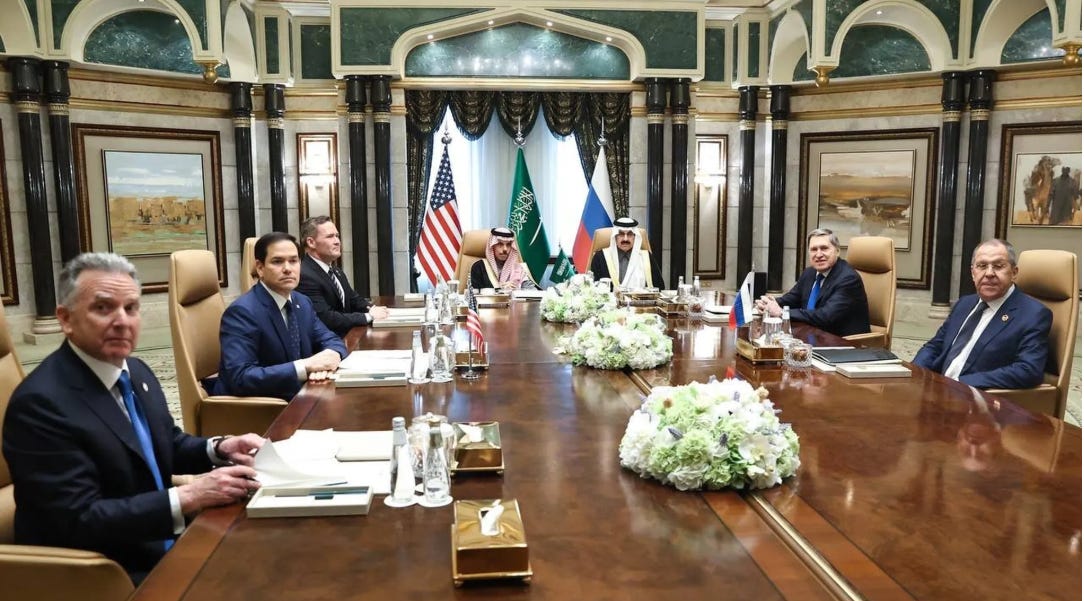Geopolitical Reset? U.S.-Russia Commence Negotiations in Riyadh
Can an Enduring Solution Be Found for the Russia-Ukraine Debacle?
On February 18, senior diplomats from Russia and the United States convened in Riyadh, Saudi Arabia, to begin negotiations aimed at ending the Russia-Ukraine war. The meeting, facilitated by Crown Prince Mohammed bin Salman, also sought to address U.S.-Russia relations, signaling the start of a new rapprochement.
At the same time, U.S. President Donald Trump has faced criticism from European allies and domestic opposition for prioritizing direct engagement with Moscow over multilateral approaches. He has been accused of undermining Western values and appeasing Putin. However, Trump has repeatedly criticized both Europe and Ukraine for their handling of the conflict. He has blamed Ukraine for not negotiating a settlement effectively and expressed reservations about Europe's ability to manage the crisis. Additionally, his administration’s policies of sidelining the EU have strained U.S.-Europe ties, raising concerns about transatlantic coordination on Ukraine.
But is Trump merely Putin’s puppet, or is this an oversimplified reading of the geopolitical situation? Could he be inflating Putin’s ego to bring him to the negotiation table, buying Ukraine time to secure a better deal, given its current territorial and casualty disadvantages?
Trump has been compared to Neville Chamberlain and accused of following a 1938-style appeasement policy, conceding to an untrustworthy dictator. However, he has pushed back, arguing that Europe and Ukraine have failed to present a viable solution to the conflict.
So, what is Trump’s plan, and what lies ahead?


